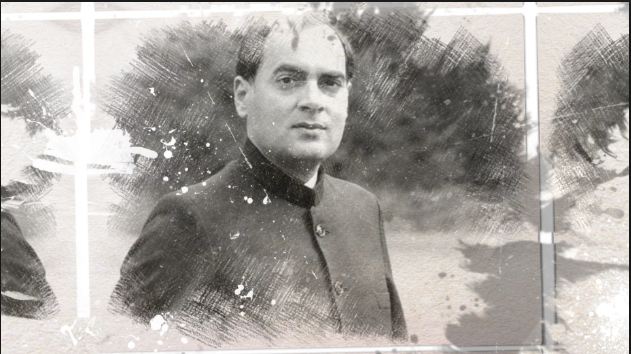Former Prime Minister and Congress leader Rajiv Gandhi whose 74th birth anniversary falls today had committed many blunders in his almost 5 year long term. In his stint as the Prime minister of the country he had been accused of taking black money from KGB and of maintaining Swiss bank accounts. His political decisions such as the ones taken in Shah Bano case and opening the locks of the Ram Mandir Ayodhya created further divide in the society and led to unrest in India for a long time post his death. His worst decisions could be the one which he took in relation to the Indian Peace Keeping Forces (IPKF) troops which he hastily sent to Sri Lanka to eliminate the Liberation Tigers of Tamil Eelam in the Jaffna peninsula of Sri Lanka. IPKF was hastily ordered by Rajiv Gandhi to begin the attacks without even taking the consensus from his cabinet.
Kunwar Natwar Singh, former Congress loyalist had blamed Rajiv Gandhi for hastily sending Indian troops to their death in the Jaffna valley without taking clear stock of the situation from intelligence agencies and other forces on ground. Natwar Singh in 2014 had alleged that Rajiv Gandhi had decided to help the Sri Lankan President JR Jayewardene in dealing with the problems in Sri Lanka. Former Army Chief VK Singh too had termed the decision as a failure of political policy on the part of the Indian PM Rajiv Gandhi. Singh said, “The decision to deploy the IPKF in Sri Lanka was a high-level policy failure. It was a policy failure that the Government of India and Sri Lanka had entered into an agreement, while the fight was between Liberation Tigers of Tamil Eelam (LTTE) and the Sri Lankan government. Neither there was control over the LTTE nor did they owe any responsibility”.
Operation Pawan was the first IPKF operation launched to neutralise the LTTE rebels in Jaffna. The plan after breaking in and destroying radio and TV stations in Tavadi and Kokkuvil was to attack and subdue them using stealth. The unfortunate events which followed in the Jaffna University Helidrop could be considered the worst debacle in the history of the army operations from the country. A detachment of Indian Para (Special Forces) and Sikh Light Infantry soldiers was originally scheduled to raid LTTE leaders and local commanders camp. A total of 17 commandos were scheduled for the air drop from the 10th battalion of the Parachute Regiment. A second wave consisting of 30 commandos from the 13th battalion of the Sikh Light Infantry were to follow the first wave. The airborne troops upon landing and shocking the now defenceless platoons of the LTTE were scheduled to join the 4th battalion of 5 Gorkha Rifles and the Sikh Light Infantry troops which would advance from ground. The operation ended in disaster as the LTTE had intercepted the radio talks of the IPKF beforehand, the paratroopers came under heavy fire from the ranks of LTTE. 29 of the 30 Sikh Light Infantry troops and 2 of the 17 commandos were killed in the gunfight which lasted throughout the night. The helidrop had to be stopped midway and the remaining commandos had to be extracted from their defensive positions. The sole survivor Sepoy Gora Singh was taken prisoner by the LTTE, upon his release the story of the debacle came out in the media.
Rajiv Gandhi through his hasty and uninformed decisions did not just sacrifice the lives of able men of the armed forces from India but also succeeded in worsening the situation in Sri Lanka. The ensuing civil war in Sri Lanka and the dissatisfaction of the rebels also led to his assassination. His immature and ill timed decision making capability not just jeopardised his future but also that of the country and led to sour relations with a large population of Sri Lankan and Indian Tamils for a prolonged period of time.
